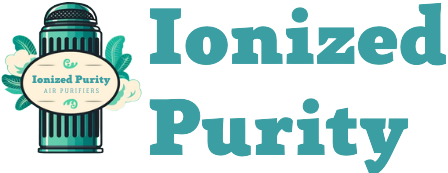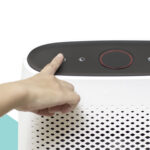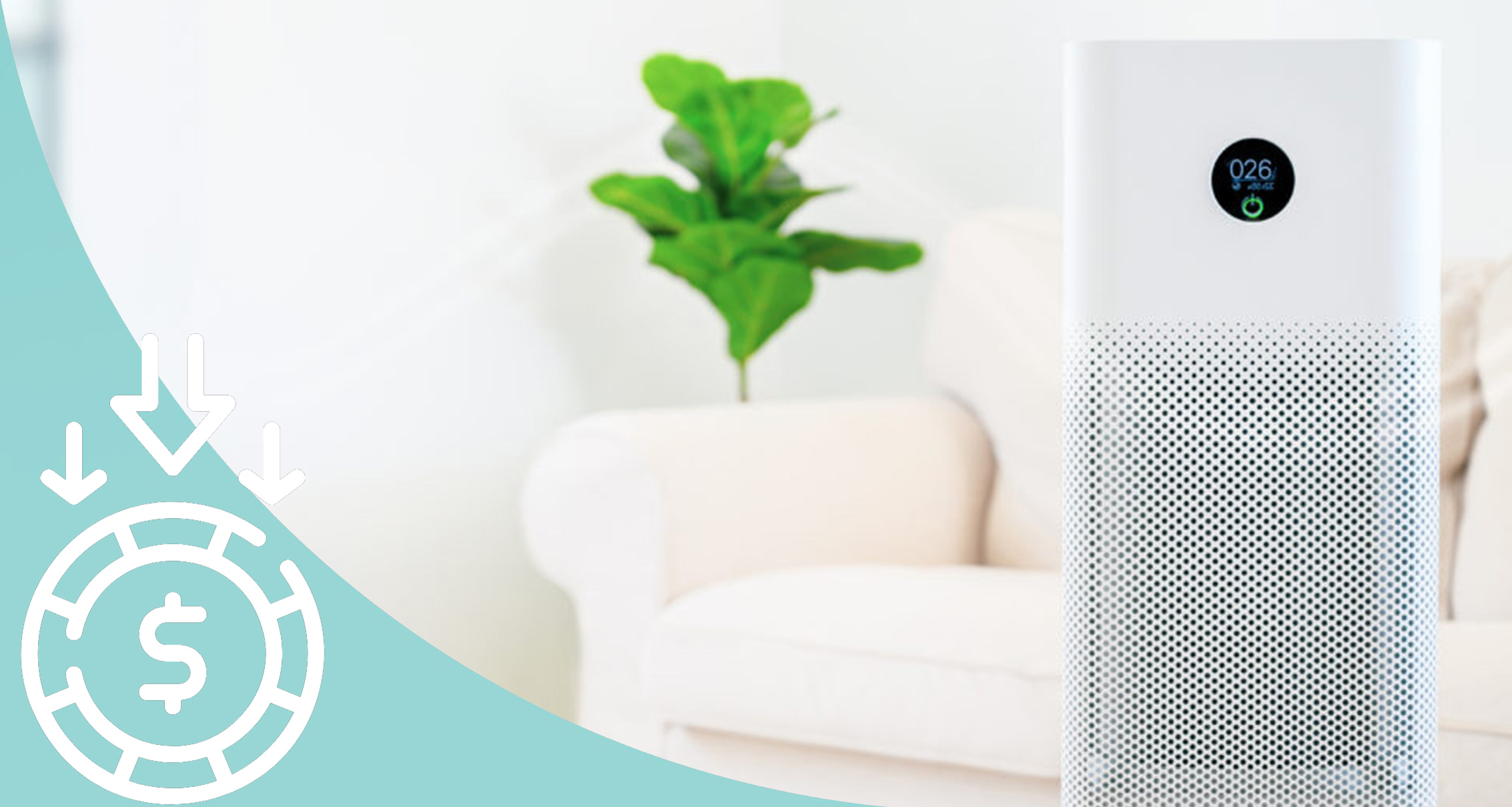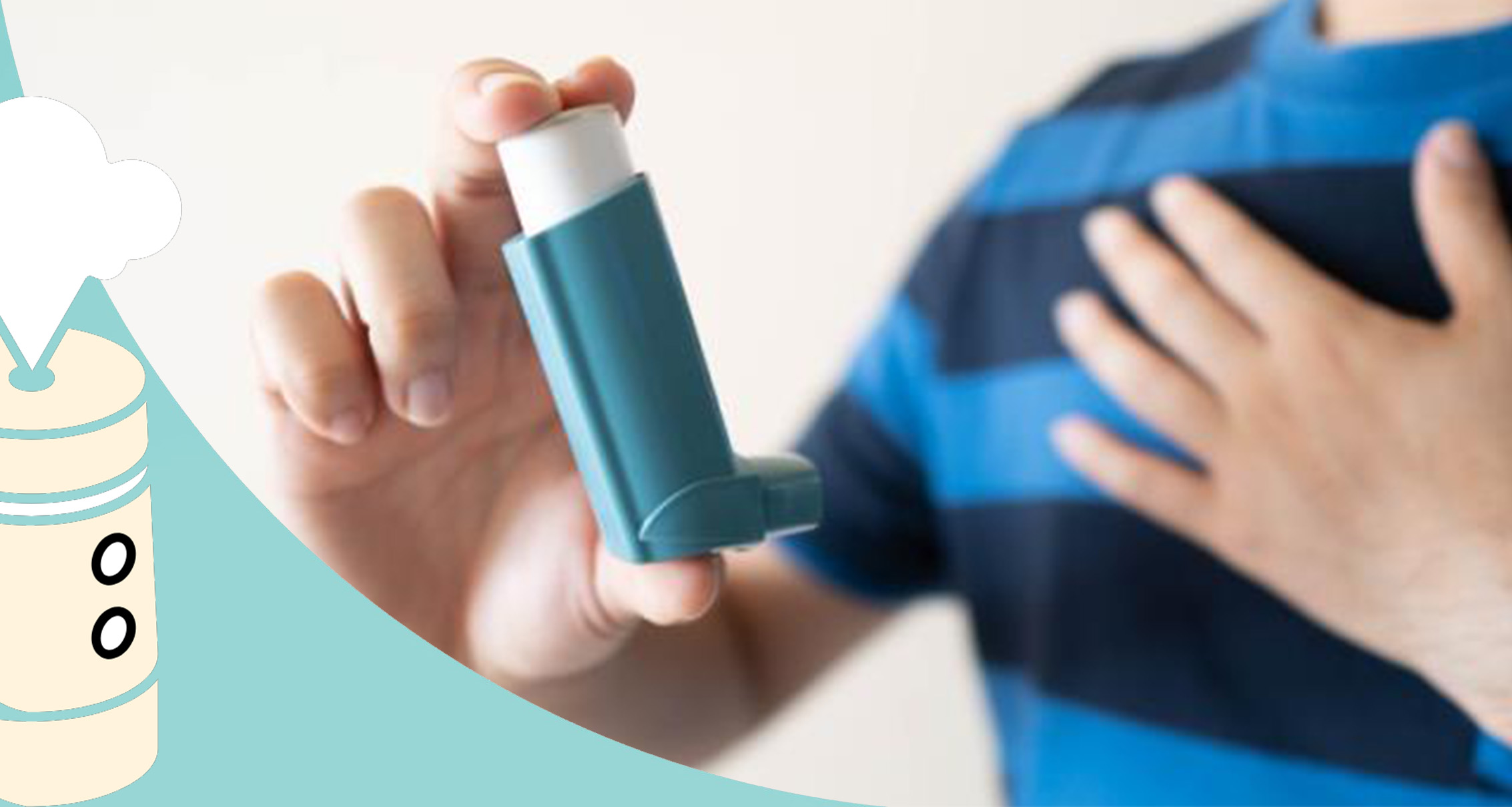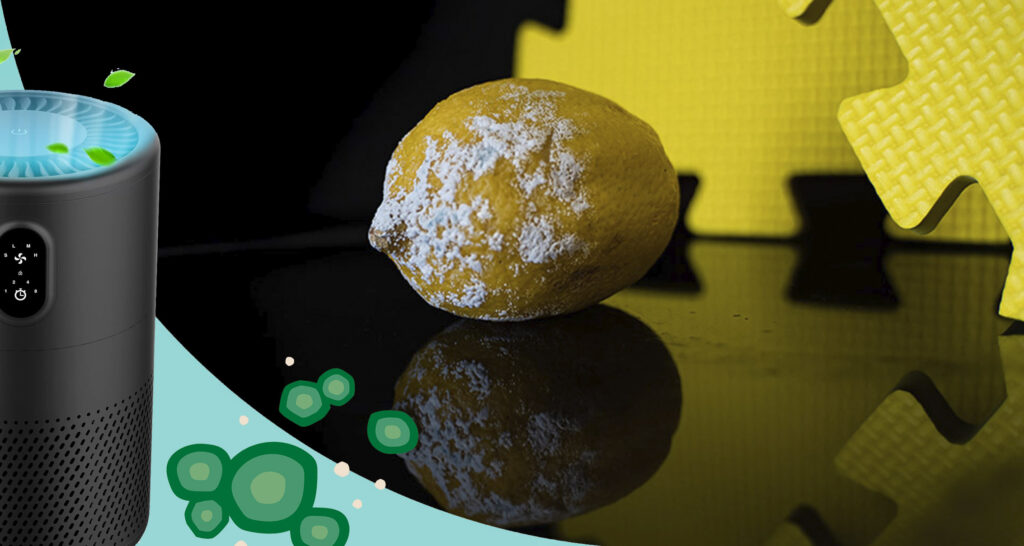
Table of Contents
What is Mold and How Does It Grow?
Mold is a type of fungi that thrives in moist and warm conditions. It reproduces by releasing tiny spores into the air. These spores are resilient and can survive even in harsh conditions. Mold growth can occur anywhere in your home, but it’s particularly fond of places like your basement, kitchen, and bathroom where humidity levels are usually high. While some types of mold are harmless, others can cause serious health problems, especially for people with allergies or weakened immune systems.
How to test for and identify mold
There are several methods you can use to identify mold:
1. Do a bleach swab test on concerning spots
One way to test for mold is by dabbing a bit of household bleach on the suspicious area. If the area quickly lightens or disappears after applying the bleach, it is likely mold.
2. Probe the area to see if it crumbles
Mold makes materials soft or crumbly, which is a clear sign of fungal growth.
3. Check for leaks
Leaks can create the perfect environment for mold growth. If you find any leaks in your house, make sure to check for mold around them.
What is Mildew?
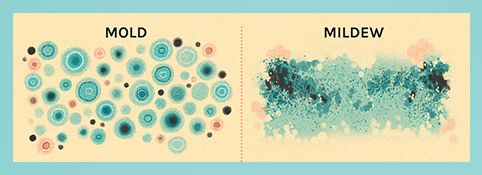
Mildew is a type of mold that has flat growth and is often found on the surfaces of damp, warm areas like shower walls and windowsills.
What is the difference between mold and mildew?
While both are types of fungi, mold is often more dangerous than mildew. Mold has a fuzzy appearance and can be a variety of colors, while mildew is usually gray or white and has a flat growth.
Mold health risks
Mold can cause numerous health problems, such as allergies, skin irritations, respiratory infections, and even toxic mold syndrome. It’s particularly dangerous for people with pre-existing respiratory conditions and weakened immune systems.
Do air purifiers help with mold?
Yes, air purifiers can help with mold. However, they are not a one-stop solution and should be used as part of a comprehensive mold-elimination strategy.
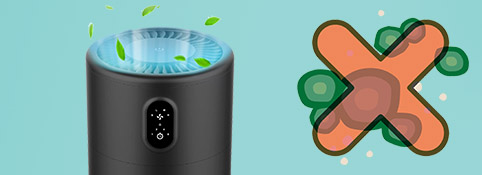
How do air purifiers help with mold?
Air purifiers for mold work by capturing airborne mold spores in their filters, preventing them from spreading and growing in your home. However, they can’t kill mold spores or remove mold growth from surfaces.
Do air purifiers help to reduce damp?
While air purifiers can’t reduce dampness directly, by removing mold spores, they can help control the spread of mold, which thrives in damp conditions.
How will you know if an air purifier is helping with mold?
You may notice a decrease in allergic reactions, improved air quality, or a reduction in musty odors if the air purifier is effectively dealing with mold.
What’s the best air purifier for mold?
Here are some of the best air purifiers for mold on the market, each with its unique features.
| Category | Model | Key Features |
| Best Overall Air Purifier | Levoit Core 400S Smart True HEPA Air Purifier | True HEPA filter, smart-home compatibility, captures 99.97% of airborne particles |
| Best Budget Air Purifier | Toppin Comfy Air C2 Air Purifier | True HEPA filter, built-in air quality sensor, affordable |
| Best Air Purifier with Humidifier | Dyson Purifier Humidify+Cool Formaldehyde PH04 | 3-in-1 functionality (purifies, humidifies, and cools the air), activated carbon and HEPA filters |
| Best Design Air Purifier | Dyson Purifier Cool Purifying Fan TP07 | Sleek design, doubles as a fan and air purifier, captures 99.97% of allergens |
| Best Air Purifier for Allergies | Bissell air400 Air Purifier | Captures 99.7% of microscopic particles, great for people with allergies |
| Best Air Purifier for Bedrooms | Levoit Core Mini Air Purifier | Quiet operation, compact size, 3-stage filtration system |
| Best Quiet Air Purifier | Rabbit Air MinusA2 Ultra Quiet HEPA Air Purifier SPA-780A | Ultra quiet operation, six-stage purification system |
| Best Air Purifier for Living Room | Winix 5500-2 4-Stage True HEPA Air Purifier | 4-stage air purification system, suitable for larger spaces |
| Best Air Purifier for Odor Control | Blueair Blue Pure 411i Max Air Purifier | Eliminates odors, captures mold spores |
Remember, while air purifiers can assist in managing and reducing the presence of mold spores in your indoor environment, they should not replace proper mold remediation and moisture control measures. For severe mold problems, it’s best to seek help from professional mold removal services.
